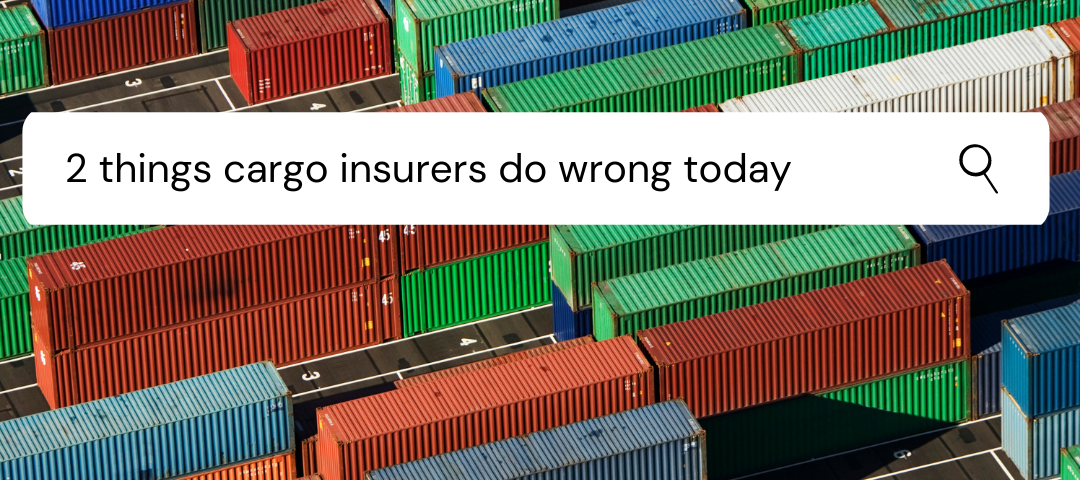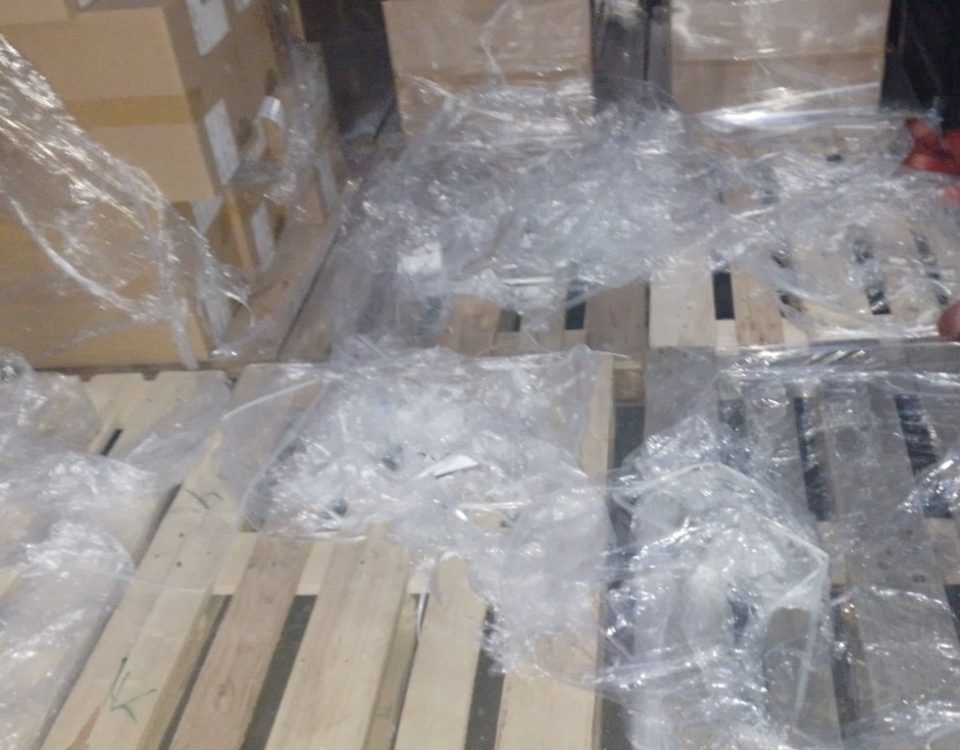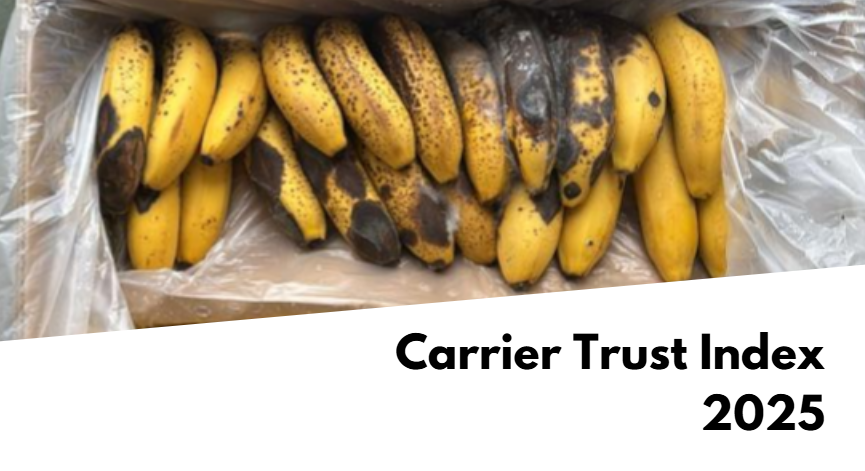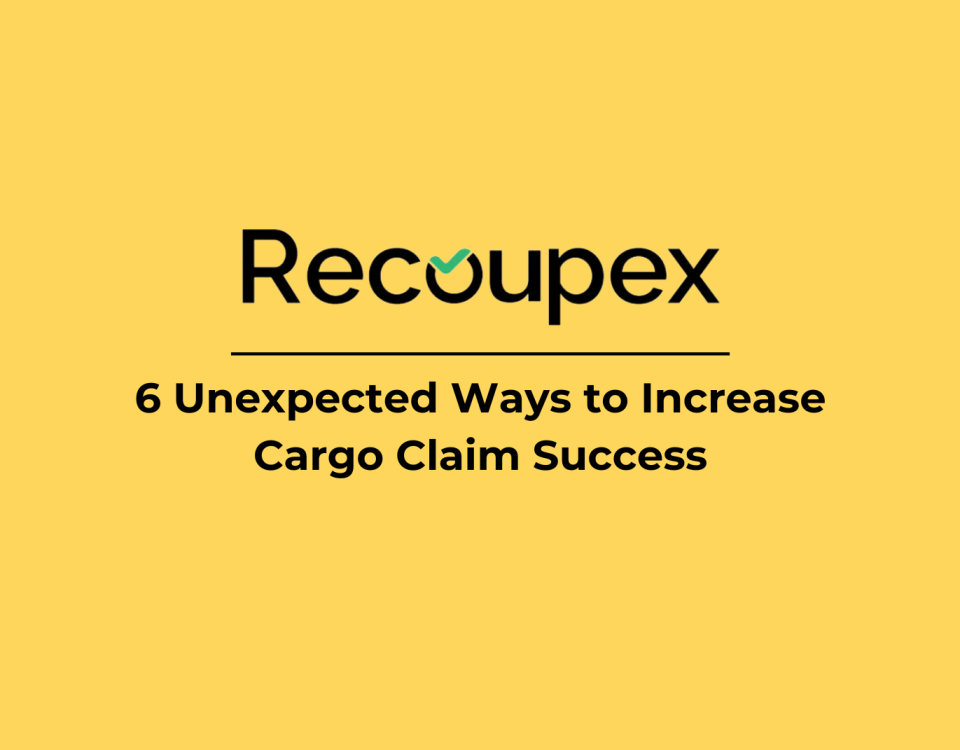Two things cargo insurers do WRONG today

The money is in the follow-up
October 20, 2020Who has a right to claim?
November 23, 2020When fellow importers tell me that their cargo was insured but couldn’t reclaim their loss, I hesitate to correct their use of language F%C*#
It is more precise to say “Hopefully insured” in their case.
Today, I’m not trying to pick on insurance companies at Recoupex have a great relationship with them. But I would like to bring attention to where cargo insurers fundamentally missed during the last decades.
It is not a secret that insurance companies exist to make profits. Yes, they have expectations that your cargo is never damaged, that you always mitigate the risks involved and losses and this doesn’t contradict with their main goal, to make cash from you as Importer or Exporter. Below are two major mistakes cargo insurers make today, which directly contributes why 60% of global cargo is uninsured and why it is more difficult that Ever before to attract and retain customers.
“Unfortunately” Category
Insurance companies, know what types of damages are most likely to cost them more money. Therefore, standard insurance policies are worded accordingly: 24hours reefer malfunction clause, no coverage for damage due to excessive delay in transit, no coverage for market value loss etc. Yet, insurers proud themselves for covering general average cases as if we still were in XVth century where every second ship sank or was hijacked.
In this category fall cases where policies are sold for exporters, who tend to sell cargo based on (CIF) terms, and they do not really read the fine print. As a result, importers are often undercovered and discover this when the damage to cargo happens. Similar practices where there is lack of appropriate coverage can be categorised under an “Unfortunately” category.
Antiquated claim and subrogation process
If damage is covered and cargo interest seek for compensation then all of the sudden insurers are slow and complicated to process the claim (OK, OK some more than others). Even today, entire cargo insurance market operates on fuelling fear to importers and exporters, complete lack for active subrogation strategies to seek for recourse from liable parties, and do not contribute enough to educate cargo interests on loss prevention.
Should I keep transporting cargo without insurance?
It depends. However, it is more important to have an understanding of what you insure, what are the risks and probability to get paid by the insurer when your cargo is damaged, how claiming damage affect your loss ratio and increase next premiums. Most insurance brokers do not know the difference between water ingress and condensation damage, that’s why you can’t count on insurance clerk to make an educated decision for you. Educate yourself!
We at Recoupex advise exporters and importers based on the commodity and the risks that might come with it, when to insure and what, when to use your insurance, when not. Changing times will require everyone to change with them. Both insurers and exims have to rethink the way they have been doing business to make it sustainable for the years to come!



